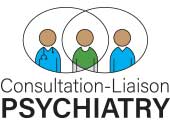Understanding the Breadth and Depth of C-L Psychiatry: Assessing and Managing Delirium
Abstract
This article is one of a series coordinated by APA’s Council on Consultation-Liaison Psychiatry and the Academy of Consultation-Liaison Psychiatry.

Delirium is at the center of many consults for consultation-liaison (C-L) psychiatrists in the hospital. It prolongs patients’ time in the hospital and causes significant distress to patients, their families, and hospital staff. Because of the increased morbidity and mortality of delirium and its different psychiatric symptoms, C-L psychiatrists play a crucial role in evaluating and managing patients with delirium and educating patients, their families, and staff. Although delirium develops rapidly within hours or days, it may take weeks to months for it to resolve, with possibly lasting consequences. The following case illustrates the clinical and medico-legal role of C-L psychiatrists in diagnosing and managing patients with delirium.
Case Study
Ms. P is a 74-year-old woman with a history of complete heart block treated with a pacemaker and no past psychiatric problems. She was admitted to the hospital after she was found on the floor of her condominium. Her blood alcohol level was 101mg/dL, and she had a urinary tract infection (UTI) and thiamine deficiency.
Psychiatry was consulted to assess decision-making capacity when she wanted to leave the hospital against medical advice, screaming that she needed to get back to her condo because she believed it was being robbed. She had waxing and waning cognition and disorganized thinking, and she was unable to focus on the task at hand.

We diagnosed her with delirium due to urinary tract infection, alcohol withdrawal, and possible Wernicke’s encephalopathy. One month earlier, she had left the hospital against medical advice after a similar admission. Her primary care provider was concerned about her ability to care for herself. Because she did not understand the reasons for her recent hospitalization and the risks of leaving, the medical team diagnosed her with dementia and debated whether she could be discharged home given her refusal of 24-hour care.
Her primary team wanted to pursue guardianship as she did not have any family. C-L psychiatry advocated that it was premature to pursue guardianship as she was still delirious. She was treated with antibiotics for two weeks, and her cognition, as measured by the Montreal Cognitive Assessment, improved, specifically in the areas of attention and orientation. She was eventually discharged home with a plan of Adult Protective Services involvement.
Discussion
Delirium is defined as global brain dysfunction with an acute change in mental status, waxing and waning cognition, alteration in attention, and disorganized thinking. It can also present with different psychiatric symptoms including emotional lability, hallucinations, delusions, disrupted sleep, agitation, or even suicidality.
Common causes include polypharmacy, alcohol withdrawal, organ insufficiency, infections, central nervous system insults, and metabolic derangements. Risk factors include advanced age and pre-existing cognitive impairment.

Delirium has significant consequences including a twofold increased risk of death, longer hospital stays, increased rate of institutionalization and rehabilitation, sustained cognitive and physical decline, and caregiver distress. According to articles by Girard and colleagues in the December 2018 New England Journal of Medicine and Thom and colleagues in the October 2019 American Journal of Psychiatry, the incidence of delirium is high, affecting 11% to 42% of patients on the general medical ward and 50% to 75% of patients in the ICU receiving mechanical ventilation.
Through their liaison work, C-L psychiatrists can help support and educate staff about detecting delirium by using tools like the Confusion Assessment Method and 4AT. Psychiatry is often consulted because delirium is perceived by other clinicians as disturbed and disruptive behavior. The C-L mandate is to advocate for medical teams to pursue and treat the usually reversible underlying medical cause of delirium.
A study by Pun and colleagues in the January 2019 Critical Care Medicine reveals that hospital initiatives can decrease morbidity and mortality through early identification and treatment of delirium; prioritizing orientation and family involvement; encouraging smart analgesic and sedation choices; and early mobility and exercise, especially in the ICU. The controversy remains around the use of antipsychotics to prevent and treat delirium, especially with their potential side effects including QTc prolongation and sudden death in the elderly. At the same time, there is limited choice of medications to help with agitation related to delirium.
Ms. P likely had underlying dementia with superimposed delirium and needed assistance at home. However, the acute phase of delirium was not the time to pursue guardianship that risks infringing on her medical decision making and her financial autonomy. Her case underscores how C-L psychiatry can play a central role on a multidisciplinary team in diagnosing delirium; differentiating it from other psychiatric disorders like dementia, schizophrenia, and depression; and understanding the impact of delirium on medical and psychosocial interventions. ■



